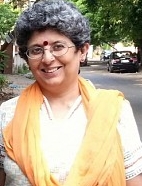PHOTOS & STILLS - GALLERY

MEDICALLY SPEAKING
There was an epoch when people could approximately tell the time without a clock with just the position of the Sun, Moon and that method is still prevalent in some parts of the world despite the modern system of equinoctal hours of 60 minutes each with 24 hours a day being followed across the world. Similarly it is very easy to draw a parallel and believe a scene in a movie where a woman faints and goes unconscious for a few seconds where her pulse is immediately examined by an elderly man/ woman in a village / locality only to conclude that the woman is pregnant. In reality, there’s no such possibility to confirm immediately if a woman has conceived or not without a medical test. Welcome to the world of entertainment where the use of medical science has little monitoring or guidelines (barring health disclaimers for smoking/drinking scenes) to be followed in films.
What are the odds that a two and a half hour first flight from Chennai to Delhi turns out to be an enlightening journey on medical themed scenes in films when all I had planned was to snooze away to glory after the take-off? Interesting encounters do happen sometimes especially when you’ve all the time and attention of your co-passenger sitting right next to you and who happens to be the Director of Critical Care Services at Apollo Hospitals, Chennai and attending a press meet in Delhi that day. That’s Dr. Ramakrishnan for you whose credentials, degrees and positions he holds in various medical associations are longer than this column can ever accommodate. An ardent follower of films and a very good friend and colleague of my uncle, Dr. JRS at Apollo Hospitals, it was very easy to keep an engaging conversation going right through the journey that facilitated a lot of insights on medicine treated as a subset or a core subject in movies.
Depiction of scenes involving medical aspects over the years has been filmed with feeble or palpable inaccuracies thereby misleading the common man’s perception of what is clinically possible or not feasible.Unlike ad films that are still monitored by ASCI guidelines,Indian films primarily viewed in the prism of entertainment and not education, there is bound to be a garb of artistic license that protects them from stringent medical advisory regulations and compliance unless the Censor board has plans to include a medical advisory committee for supervision. Three big stars Vinod Khanna, Rishi Kapoor and Amitabh Bachchan who played Amar, Akbar, Antony respectively in the 70’s movie by the same name could’ve probably gotten away with donating blood directly to an accident victim played by Nirupa Roy unaware that she is actually their biological mother on screen. However, Directed blood donation (where the recipient is chosen by the donor or vice versa voluntarily) will have to go through various tests, process and safety requirements before the transfusion even in emergencies.
From a point when tragic endings had to do with battling cancer with the protagonist mostly spewing blood to a more peaceful ending of passing away at home or even being cured in today’s films, cinema has made progress in its depiction of medical scenes. Thanks to a movie’s core subject of dealing with hitherto unknown illnesses and medical conditions, we’re much more aware of progeria (Paa), dyslexia (Taare Zameen par), bipolar disorder (Aarohanam, ’kolaveri song film - 3), impotency (Kalyana Samayal Saadam) or Asperger’s Syndrome (My name is Khan) and their possible outcomes/treatment. Such movies act like an alarm to be more sensitive when similar issues and situations occur in the lives of people we know. Additionally, they may even serve to escalate the anxieties and raise doubts in people regarding a symptom they themselves may be experiencing. Very recently there was a patient that came to Dr. Ramakrishnan for getting himself checked for the same Narcolepsy (extreme and sudden daytime sleepiness) condition based on what he had seen in the film ‘Naan Sigappu Manithan’. His condition was indeed diagnosed as suspected and the treatment was started soon after.
Content creators today do a lot of research before penning the script, directing the film or acting the part and even consult doctors for getting their facts and characterization right. Director Vasanth in his film Satham Podathey, delved deep into the problem/effects of alcohol addiction with adequate guidance from his good friend Dr. Ramakrishnan on paranoid psychosis that gets depicted in the film’s scenes with references taken from real-time videos and medical case histories. Director Vignesh Menon gave a lot of reference videos of paraplegic cases for his maiden venture ‘Vinmeengal’ that helped actor Rahul Ravindran understand the condition better (besides online references) and play the leading part of a character affected by cerebral palsy. Rahul admitted that the creative liberties are of course taken in the interest of bringing out the emotion better and making the scene work according to the script but he also cautioned that it can only be done if the actor involved has done the homework well enough to tweak the portrayal convincingly.
My father’s eyes, soon after he passed away from a sudden heart attack, were donated through Rajan Eye Care but we were never told who the two recipients were (only one eye is usually given to a single patient so two people can see). So when I saw the film ‘Chennaiyil Oru Naal’ (remake of the Malayalam hit film ‘Traffic’) while it created awareness on organ donation and how time is of utmost essence in transporting the organ, Dr. Ramakrishnan clarified my doubts that the family of a brain dead donor and the transplant recipient’s family never communicate with each other in real life and a specialist if at all was involved in the making could’ve pointed out this minor flaw in the film. Dramatization and deviation from medical facts /procedures are two very different things that need to be treaded carefully.
Dodging bullets and bashing ten goons by one man is not new to cinema. If an issue as complex, impactful and significant as healthcare is involved, there must be responsible handling even when portrayed through a creative lens. Dr. Ramakrishnan who also runs the SAGA Charitable Trust that has trained over 15000 people till date on life saving skills, relates to the self-inflicted death by high voltage shock and revival scene in the Shankar directed film ‘Sivaji’ as dangerously misleading. The hero dies in police custody and much later brought back to life through external defibrillator and cardiopulmonary resuscitation (CPR). Films should avoid any demonstrable fact that can play a significant role to drastically sway the public’s understanding on how effective CPR is and leading them to wrong choices or actions. The other option is to at least have a disclaimer in such scenes that they are not to be imitated and is just fictitious portrayal.
As we were landing in Delhi, this was the prescription I registered from the in-flight conversation. Medical scenes in films may influence the general public in many ways, including their perceptions of health-care providers, doctors, treatment and hospitals. A large part of ethical responsibility rests in the able hands of the directors and storywriters with adequate guidance from experts to portray medical possibilities to a very trusting audience that could absorb the message at face value without discounting the creative liberties they may have taken. Neither are we living at a time when any of those inexplicable recovery scenes are filmed where the doctors exclaim, “It’s a medical miracle” nor are we talking about fantasy films like ‘Koi Mil Gaya’ or sci-fi movies like ‘Star wars’ that warrants suspension of disbelief! Keeping the miracle aside, it’s time to bring the magic on screen with responsible dosages of creativity so we don’t have a world of movie watching audience where the intelligent ones are full of doubts and the ignorant ones are full of confidence.
Behindwoods is not responsible for the views of columnists.
FACEBOOK COMMENTS
OTHER LATEST COLUMNS
ANUJA IYER'S OTHER COLUMNS
- Medically speaking
- Management lessons from films- Anuja Iyer's column
- The Colour of mindset
- In-film branding
- A point of view
- The Political Trail
- Celeb Abrasion
- From paper to film
- Respite from stereotype
- Ring in a Resolution
- The End
- ArthamuLLa DeepavaLi
- Thoughts from my Stratosphere
- Much in touch
- Tripped and rupeed
- Unfinished homework
- Like ah, No like ah?
- Classical touch
- An untimely frost
- 6 seconds to sway
- 100 and not out
- Galatta Kalyaanam
- Connections and conversations
- An hour with Haasan
- Eulogy
- Does age matter?
- Any Votes for devotion?
- The whole six yards
- Rejuvenating Revathy
- Madras Nalla Madras
- Audience beware
- Smile OK Please.
- Changing with the times
- Staging Live
- Lateral Triangle
- How to name it
- A magical morning
- Chromosome XX
- The difficulty of being good
- Whats In A Day
- Why this Pogaveri?
RELATED LINKS
- Anuja Iyer
- Management lessons from films- Anuja Iyer's column
- In-film branding
- Chinmayee - Rahul Wedding Reception
- Chinmayee - Rahul Wedding Reception
- A point of view
- Pongadee Neengalum Unga Kadhalum I II
- The Political Trail
- Celeb Abrasion
- From paper to film
- Respite from stereotype
- Ring in a Resolution
- The End
- The End
- ArthamuLLa DeepavaLi











